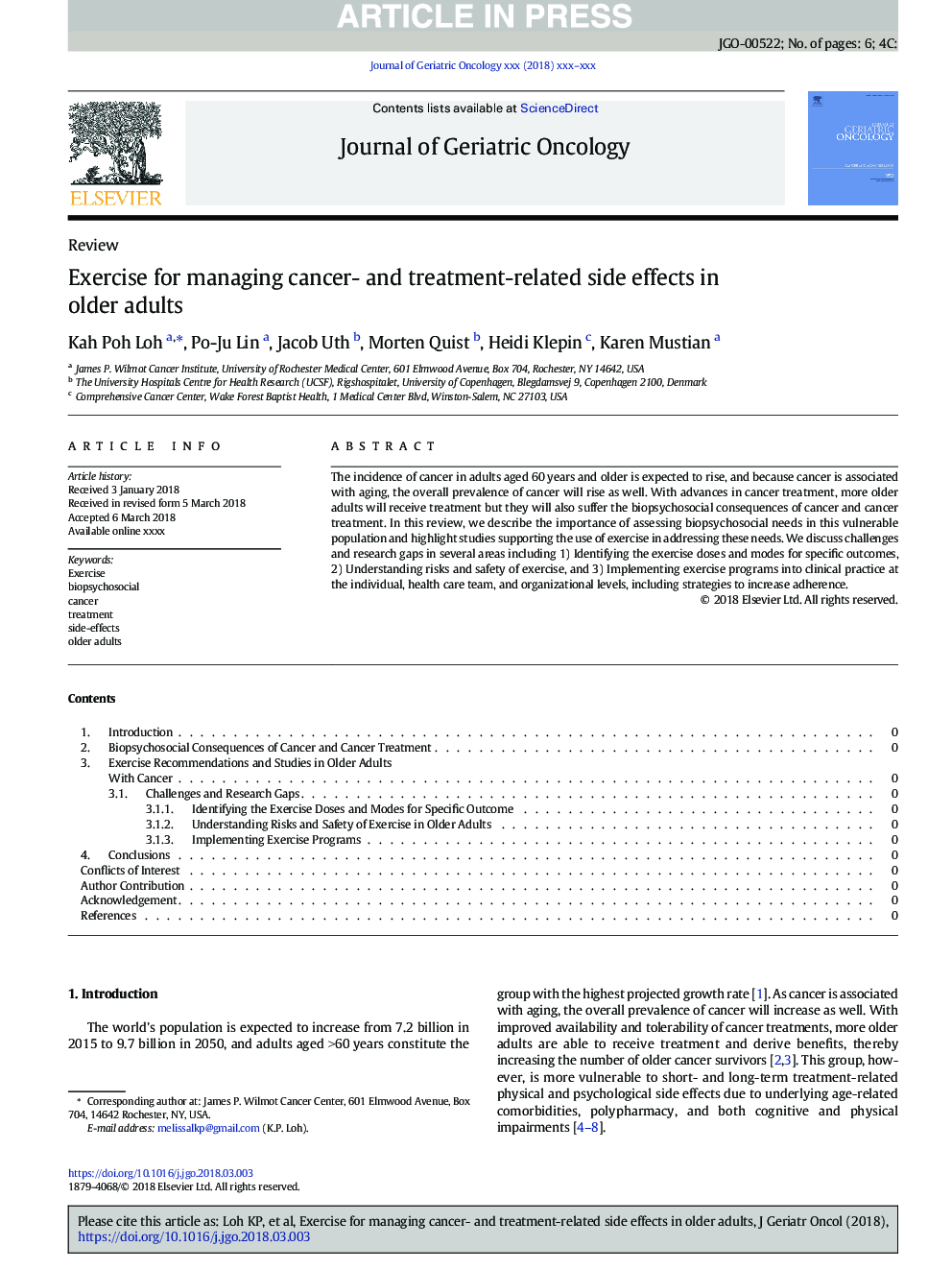| Article ID | Journal | Published Year | Pages | File Type |
|---|---|---|---|---|
| 8272031 | Journal of Geriatric Oncology | 2018 | 6 Pages |
Abstract
The incidence of cancer in adults aged 60â¯years and older is expected to rise, and because cancer is associated with aging, the overall prevalence of cancer will rise as well. With advances in cancer treatment, more older adults will receive treatment but they will also suffer the biopsychosocial consequences of cancer and cancer treatment. In this review, we describe the importance of assessing biopsychosocial needs in this vulnerable population and highlight studies supporting the use of exercise in addressing these needs. We discuss challenges and research gaps in several areas including 1) Identifying the exercise doses and modes for specific outcomes, 2) Understanding risks and safety of exercise, and 3) Implementing exercise programs into clinical practice at the individual, health care team, and organizational levels, including strategies to increase adherence.
Related Topics
Life Sciences
Biochemistry, Genetics and Molecular Biology
Ageing
Authors
Kah Poh Loh, Po-Ju Lin, Jacob Uth, Morten Quist, Heidi Klepin, Karen Mustian,
